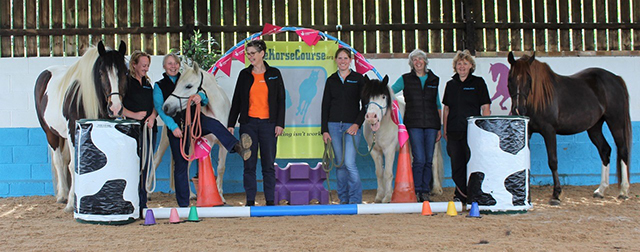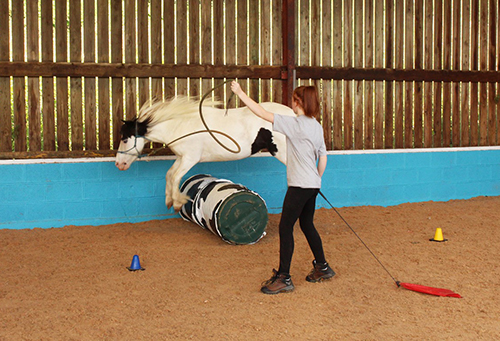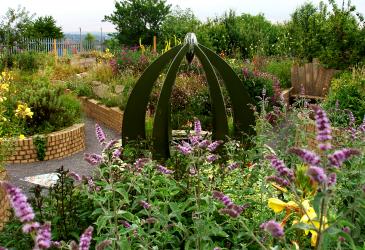TheHorseCourse - "When talking isn't working..."
- Region: South West
- Founded/started on site: 2010
- Member since: 2018
- Link to member profile on our map
TheHorseCourse is a busy Equine-Assisted Interventions Centre based on an ex-dairy farm in Weymouth. First started in 2010, the team moved to their permenant site in 2017. The twenty acre site is now home to 15 horses and a team of 6 full staff providing a specialist service to over 500 people from 8 to adult throughout the year.
Harriet Laurie, founder, explains what TheHorseCourse offers people who are struggling and for whom other more mainstream therapeutic approaches may not be working.
“At our care farm we work primarily through the medium of horsemanship, though we also have a land-based supported volunteering programme.
“Our service users are all referred by statutory agencies - NHS mental health teams, social services and schools for pupils with complex needs. We work with people where all else has failed – when talking isn’t working. That is to say, the people we work with either can’t or won’t engage with more mainstream talk-based therapies such as counselling, behaviour programmes or other kinds of support – or they have engaged with a talk-based therapy but this hasn’t led to long-term changes for them.
“We use an American style of horsemanship. This doesn’t really involve riding the horses. The easiest way to describe it that our clients learn to be a horse whisperer. Our horses are very carefully trained to respond to body language and are very sensitive to the emotional state of the person giving them instructions. With the aid of our highly trained facilitators, clients can learn to guide the horse – to get it to kick a ball, jump over an obstacle, turn or stop – all with no physical means of control other than their body language. But it won’t work if they aren’t calm and focused, or if they don’t have a plan. This is where the therapeutic benefit lies. The interaction with the horse gives the client really good feedback about how well they are doing whilst the skilled facilitators guide the clients to success by finding a shift in their emotions and behaviour.
“We also train frontline workers and parents in non-verbal behaviour management strategies and we train and support others to replicate our programmes elsewhere. We currently have around 40 volunteers per year, mainly service users returning both to help and to continue their development. We are aiming to provide more volunteer spaces and do more work around horticulture and other land-based activities as we grow into our lovely farm.
“We are second to none in our evidence base and engagement with researchers. There are numerous academic studies and impact evaluations of our work showing positive results available on our website: www.thehorsecourse.org/evidence
Harriet concludes: “For me, it’s always a privilege to witness the benefits this work brings, we – our team and our horses – are helping people to reclaim their lives.”

Finally, what do you value about being a member of Social Farms & Gardens?
"When we were starting out, our service and therapeutic approach was innovative – this type of service wasn’t widely on offer in the UK. The robust quality assurance programme offered by SF&G’s Code of practice for care farming services was hugely useful to us. It gave us clear criteria to check our practice against and provides reassurance for local authorities referring vulnerable clients to us that they will be safe and benefit from our services. SF&G helped us to articulate where we fit in within the wider context of care farming and other green care services, which has been an important element for us to become more ‘mainstream’."
Related Case Studies
Scotswood Garden works with nature to create a great place for people and wildlife to enjoy. The garden is about community, whether in Scotswood and Benwell or the wider area, and they welcome people of all ages and backgrounds to get involved in the work.


